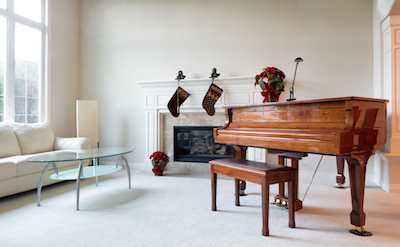What does piano practice mean to you? Unfortunately, for many parents, they associate practice with time or repetition. Have you ever said this to your child?
- It’s time to practice the piano for 30 minutes.
- Play the song 25 times before you get up.
In both cases, playing the piano becomes a chore. They associate it with something they are forced to do. They start watching the clock. Or counting and speeding up the song to get through it quickly. Neither of which instill the love of music into their hearts. 
Talk with their piano teacher about finding ways to encourage them to play without making it a chore. Here are a few ideas as well:
Start a practice journal. This doesn’t work for everyone, but if your child is motivated by seeing how well they do, recording their progress can give them a log of how much they accomplish. It gives them things to strive for each time they sit down and play the piano.
Good practice is more than learning particular pieces. It’s also about building good habits and learning strategies that make playing easier. That’s why we play scales. That’s why repetition is good.
Practice should also be about incorporating what makes a child feel good. Each child has different goals and dreams. Are they motivated by playing particular pieces? Are they motivated by receiving gold stars? This should be about encouraging your child to do better for themselves, not solely to meet your particular goals or desires.
Use technology. There’s no getting around technology everywhere in our lives. Why not give them piano skills through different gaming and training apps too? These tools can encourage your child beyond just playing and give them the desire to improve their skills too. How about conducting? Or developing their own music? There are literally apps for that. The key is finding what motivates your child the most.
Have any questions about motivating your child to become better at playing the piano? We can help.

